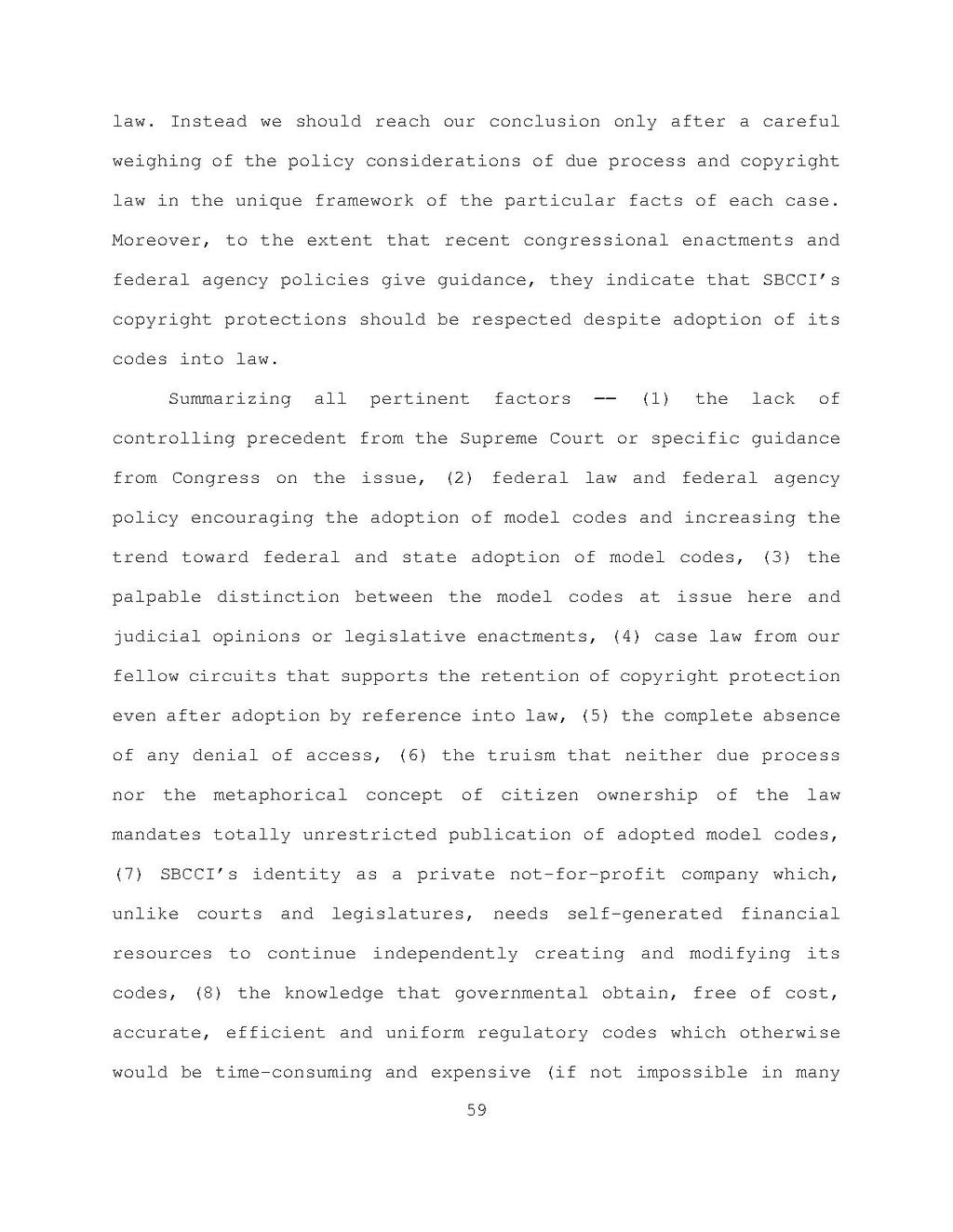law. Instead we should reach our conclusion only after a careful weighing of the policy considerations of due process and copyright law in the unique framework of the particular facts of each case. Moreover, to the extent that recent congressional enactments and federal agency policies give guidance, they indicate that SBCCI's copyright protections should be respected despite adoption of its codes into law.
Summarizing all pertinent factors—(1) the lack of controlling precedent from the Supreme Court or specific guidance from Congress on the issue, (2) federal law and federal agency policy encouraging the adoption of model codes and increasing the trend toward federal and state adoption of model codes, (3) the palpable distinction between the model codes at issue here and judicial opinions or legislative enactments, (4) case law from our fellow circuits that supports the retention of copyright protection even after adoption by reference into law, (5) the complete absence of any denial of access, (6) the truism that neither due process nor the metaphorical concept of citizen ownership of the law mandates totally unrestricted publication of adopted model codes, (7) SBCCI's identity as a private not-for-profit company which, unlike courts and legislatures, needs self-generated financial resources to continue independently creating and modifying its codes, (8) the knowledge that governmental obtain, free of cost, accurate, efficient and uniform regulatory codes which otherwise would be time-consuming and expensive (if not impossible in many
59
